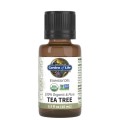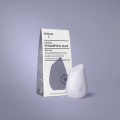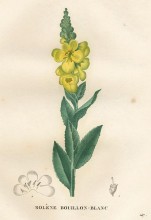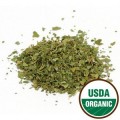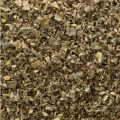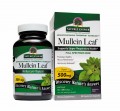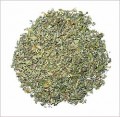 Loading... Please wait...
Loading... Please wait...- Home
- About Us
- Shipping, Returns & FAQ's
- Contact Us
-
For Your Information
- Canadian Customers Have a Choice if Shipping Via UPS
- Aura Cacia Homemade Aromatherapy Recipes
- Bella Nella Altered Art & Paper Crafts Blog
- Forms of Herbal Preparations
- Laundry Tips To Conserve Energy Blog from The Laundress
- The Story of Frontier Natural Products Co-Op
- Sovereign Silver Hydrosol and Aloe Protocol Stops Downward Spiral of Gut Dysbiosis
- Disclaimers
- Recommended Links
- RSS/Recent News
- The Story of Typhoon Housewares
- Reviews/Testimonials
- Raw Ingredients for Mfg
Mullein Leaf Wildcrafted/Organic Bulk
Product Description
The Mullein has very markedly demulcent, emollient and astringent properties, which render it useful in pectoral complaints and bleeding of the lungs and bowels. The whole plant seems to possess slightly sedative and narcotic properties.(1)
It is considered of much value in phthisis and other wasting diseases, palliating the cough and staying expectoration, consumptives appearing to benefit greatly by its use, being given in the form of an infusion, 1 OZ. of dried, or the corresponding quantity of fresh leaves being boiled for 10 minutes in a pint of milk, and when strained, given warm, thrice daily, with or without sugar. The taste of the decoction is bland, mucilaginous and cordial, and forms a pleasant emollient and nutritious medicine for allaying a cough, or removing the pain and irritation of haemorrhoids. A plain infusion of 1 OZ. to a pint of boiling water can also be employed, taken in wineglassful doses frequently.
The dried leaves are sometimes smoked in an ordinary tobacco pipe to relieve the irritation of the respiratory mucus membranes, and will completely control, it is said, the hacking cough of consumption. They can be employed with equal benefit when made into cigarettes, for asthma and spasmodic coughs in general.
Fomentations and poultices of the leaves have been found serviceable in haemorrhoidal complaints.
Mullein is said to be of much value in diarrhoea, from its combination of demulcent with astringent properties, by this combination strengthening the bowels at the same time. In diarrhcea the ordinary infusion is generally given, but when any bleeding of the bowels is present, the decoction prepared with milk is recommended.
On the Continent, a sweetened infusion of the flowers strained in order to separate the rough hairs, is considerably used as a domestic remedy in mild catarrhs, colic, etc.
A conserve of the flowers has also been employed on the Continent against ringworm, and a distilled water of the flowers was long reputed a cure for burns and erysipelas.
An oil produced by macerating Mullein flowers in olive oil in a corked bottle, during prolonged exposure to the sun, or by keeping near the fire for several days, is used as a local application in country districts in Germany for piles and other mucus membrane inflammation, and also for frost bites and bruises. Mullein oil is recommended for earache and discharge from the ear, and for any eczema of the external ear and its canal. Dr. Fernie (Herbal Simples) states that some of the most brilliant results have been obtained in suppurative inflammation of the inner ear by a single application of Mullein oil, and that in acute or chronic cases, two or three drops of this oil should be made to fall in the ear twice or thrice in the day.
Mullein oil is a valuable destroyer of disease germs. The fresh flowers, steeped for 21 days in olive oil, are said to make an admirable bactericide. Gerarde tells us that 'Figs do not putrifie at all that are wrapped in the leaves of Mullein.'
An alcoholic tincture is prepared by homoeopathic chemists, from the fresh herb with spirits of wine, which has proved beneficial for migraine or sick headache of long standing, with oppression of the ear. From 8 to 10 drops of the tincture are given as a dose, with cold water, repeated frequently.
The mildly bitter and pungent mullein leaf is immensely beneficial and also on the Food and Drug Administration's Generally Recognized as Safe, or GRAS, list.
Respiratory Benefits (2)
The University of Maryland Medical Center states that 3 g of mullein leaves per day helps clear mucus from the respiratory tract and may be used to treat respiratory illnesses including cough and lung congestion. The Maine Organic Farmers and Gardeners Association, also known as MOFGA, recommends mullein leaves along with mullein flowers to relax the chest in patients suffering from asthma, emphysema or whooping cough. The leaves may also be used to prevent the common cold in fall and ease breathing in the summer months when the ozone levels are high.
Pain Relief
The MOFGA states that the mullein leaf may be applied topically in the form of a poultice to treat arthritis and muscle pain. Topical application of the leaves may also soften and protect the skin. May also be used to treat burns and bruises.
Antiviral
Herpes viruses are a group of 25 viruses—including the herpes simplex virus, Epstein Barr virus and cytomegalovirus—that cause a variety of conditions in the body ranging from genital herpes and shingles to certain carcinomas. Influenza viruses, on the other hand, are commonly responsible for the flu. Drugs.com reports that mullein leaves possess antiviral activity, especially against these two viruses. Although the full impact of their antiviral activity is unknown, you may talk to your doctor to find out if mullein leaf may be used along with other medications to hasten your recovery
Phthisis Relief
An infusion of mullein leaves prepared by boiling 1 oz. of leaves in a pint of milk for 10 minutes, straining it and drinking it warm three times a day may help manage phthisis, a form of systemic tuberculosis, says M. Grieve, author of the book "A Modern Herbal." The mixture helps relieve cough and reduce the pain and irritation associated with hemorrhoids.
Mullein Leaf Cut Organic is available in the Drop-Down menu as 'Other' option.
References
(1) botanical.com
Benefits of Mullein Leaf Herb In Clearing Mucus From The Body
(2) livestrong
Rosemary Gladstar's Medicinal Herbs: A Beginner's Guide: 33 Healing Herbs to Know, Grow, and Use by Rosemary Gladstar
A Field Guide to Medicinal Plants and Herbs: Of Eastern and Central North America by Steven Foster, James A. Duke
Botanical Name: Verbascum thapsus
Origin: Bulgaria
Notes: Green color with a leafy and senna-like aroma and a dry, leafy flavor. Kosher Certified. Non-irradiated
Specifications are subject to change without notice.
* FDA Disclaimer
You Recently Viewed...
Currency Converter
Choose a currency below to display product prices in the selected currency.





